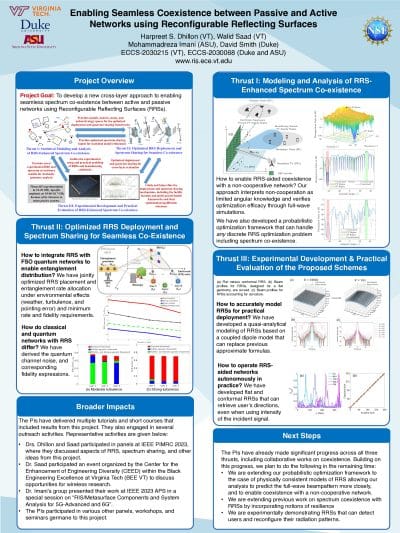Authors
Harpreet Dhillon, Walid Saad, Mohammadreza Imani, David Smith
Abstract
Harmonious coexistence between multiple wireless technologies is necessary for efficient utilization of the radio spectrum. However, enabling this in practice is known to be challenging because of the random and uncontrollable nature of the wireless channels, which makes it difficult to limit interference among co-existing wireless systems. This challenge is exacerbated by the fact that many wireless technologies, such as radio astronomy, rely on passive receivers whose performance can be disrupted by the slightest levels of interference. However, recent advances in metamaterials have made it possible to develop reconfigurable reflective surfaces (RRSs), which are electromagnetically active surfaces (e.g., a wall with wireless capabilities) that can be used to control the wireless propagation environment. Thus, RRSs can potentially help mitigate the challenge of interference among co-existing wireless technologies. In this poster, we present recent findings from our projects that looks at exploiting RRSs to enhance spectrum sharing and improve wireless co-existence. We showcase results related to: a) modeling and analysis of RRS-enhanced systems for spectrum co-existences, b) design of new approaches for deploying RRSs in general wireless systems, and in emerging applications like quantum communications, and c) Experimental evaluation and development of RRS simulation and hardware.

